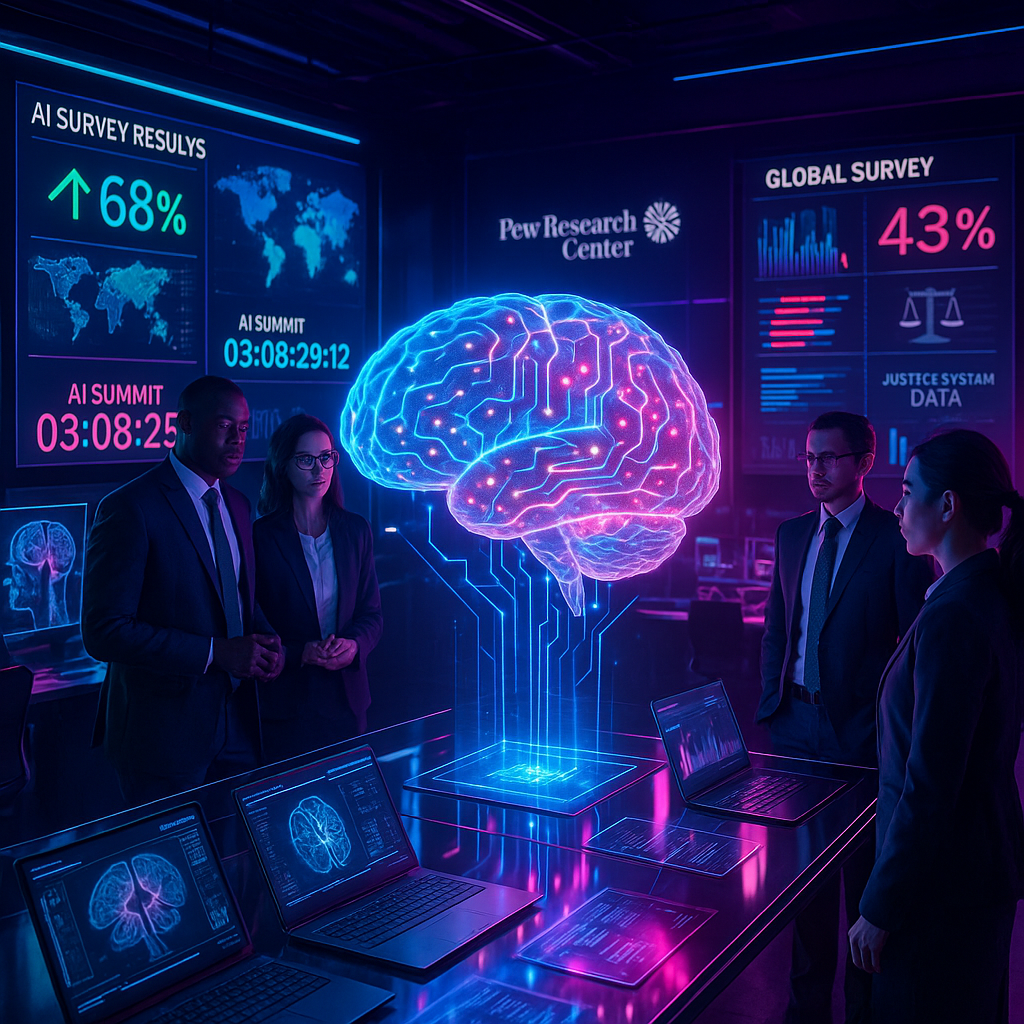Key Takeaways
- Top story: A comprehensive global survey reveals widespread public ambivalence toward the impact of AI, highlighting uncertainty and divergent attitudes.
- European tech companies have introduced six AI principles designed to guide the responsible integration of AI in education.
- New workplace AI tools are automating routine tasks, prompting renewed debates around efficiency and job displacement.
- AI-driven creativity is challenging established definitions of authorship, making it harder to distinguish between human and machine origin.
- Discussions about AI and society emphasize ethical considerations at the intersection of technological advancement and responsibility.
Introduction
A global survey released on 16 October 2025 anchors today’s Press Review. It reveals deep public ambivalence about AI’s expanding role in society. As European technology companies unveil new educational AI principles, the ongoing dialogue about AI and society continues to blur boundaries between innovation, authorship, and ethical responsibility.
Top Story: Public Trust in AI Shows Complex Patterns
A recent Pew Research Center survey of 25,000 participants from 19 countries found that 68% of respondents expressed both excitement and concern about the integration of artificial intelligence in daily life. This study demonstrates a sophisticated public sentiment that does not fit simple categories.
Levels of trust differ across AI applications. Medical diagnostics and climate modeling receive higher confidence ratings (72% and 65% respectively), while only 31% express trust in autonomous AI decision-making within justice systems. These distinctions indicate that the public is developing a nuanced understanding of various AI uses.
Academics and industry leaders have stated that the findings reflect a pattern of “strategic optimism.” Individuals engage with AI tools while maintaining critical awareness of their limits. This trend signals a maturing discourse on artificial intelligence.
Stay Sharp. Stay Ahead.
Join our Telegram Channel for exclusive content, real insights,
engage with us and other members and get access to
insider updates, early news and top insights.
 Join the Channel
Join the Channel
Also Today: Technology and Ethics
AI Guidelines Face Corporate Pushback
Major technology firms have voiced mixed reactions to the European AI Safety Framework. Google and Microsoft endorsed the core principles, yet both requested adjustments to the timelines for implementation. Meanwhile, several smaller AI companies argued that the regulations could inhibit innovation.
Academic Consortium Launches AI Impact Study
The Global Academic AI Consortium has initiated a three-year research project aimed at assessing the effects of artificial intelligence on labor markets and social structures. Fifteen universities from North America, Europe, and Asia are contributing their expertise to this effort.
Also Today: Innovation and Society
AI Training Costs Raise Accessibility Concerns
Stanford’s AI Index reported that computational resources for advanced AI model training have increased tenfold since 2023. Observers note that this trend raises important questions about accessibility and the democratization of artificial intelligence development.
Public Sector AI Adoption Accelerates
Government agencies have reported a 45% increase in AI project implementations compared to last year. Healthcare and environmental protection agencies lead this growth, with pilot programs demonstrating success in predictive maintenance and resource optimization.
What to Watch
- World AI Safety Summit: 22 October 2025 (London)
- EU Parliament vote on AI Act amendments: 25 October 2025
- Global AI Ethics Conference: 3 November 2025 (Singapore)
- Tech Industry AI Standards Forum: 15 November 2025 (San Francisco)
Conclusion
Public perspectives on AI and society remain deeply complex, balancing excitement with skepticism and reflecting an evolving understanding of artificial intelligence across various sectors. Ongoing debates about regulation, accessibility, and innovation in education continue to shape this dialogue.
What to watch: the World AI Safety Summit on 22 October 2025 and the EU Parliament vote on AI Act amendments on 25 October 2025.





Leave a Reply